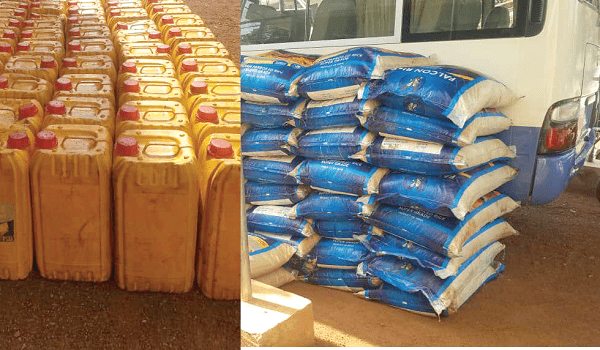
Is smuggling corruption?
Smuggling is one of the major proponents of the upsurge of corruption in nations. It poses danger to the security of nations, thrives in nations that have porous borders, high tariffs, and denies them revenue that could be used for national development.
The curbing or minimisation of corruption cannot be achieved if smuggling is not thoroughly addressed because they are two parts of the same tree in a symbiotic relationship - feeding on each other.
This is so because smuggling can be likened to an invisible vehicle that secretly transports contraband goods and services to their destinations, which is against the laws of the land. From observations, the fight against smuggling has been overlooked with more attention rather paid to other vices; therefore, making the scale imbalanced.
As such, this article throws light on how fruitless the fight against corruption may seem within the context of the less attention given to the fight against smuggling, which paves the way for corrupt acts to thrive.
Smuggling activities in Ghana
Smuggling is an activity that is prevalent in porous and badly controlled border areas in Ghana. Research reveals that Ghana has porous and some undiscovered borders used by skilled smugglers. Ismael K. Hlovor, in his article “Border residents and cross border crimes in Ghana: An empirical study of Aflao”, terms such areas as “ungoverned space” or “alternatively governed” areas that are exploited by corrupt individuals aided by settlers in the area for mutual illegal gains.
According to Hlovor, activities engaged in such areas include drug trafficking, human trafficking, arms trafficking, and smuggling of goods including cloths/fabrics, drinks and other consumables into Ghana.
Similarly, goods smuggled out of Ghana include cocoa, agriculture inputs (government subsidised fertilisers), salt and petroleum products, which are sent to neighbouring countries such as Cote d’Ivoire, Burkina Faso and Togo. These acts cause financial loss to the nation because the actors do not pay taxes.
The outcome of Ismael K. Hlovor’s research revealed that the main reasons for residents along the various Ghanaian borders engaging in smuggling activities are poverty and unemployment, usually among the youth.
Consequently, the practice has become means of survival for such residents. It is a moneymaking opportunity. Also, smuggling in such areas is akin to trade that is practiced over time leading to the acquisition of knowledge, skills, and competencies, thus, becoming the “normal” way for survival. As such, it is acceptable to all in such geographical environments.
“Knowledge”, in this perspective, refers to undiscovered routes used to evade the scrutiny of government officials, while manoeuvring them to reach the desired destination. “Skills”, in this context, is the ability to use the knowledge gained to aid smugglers to their destinations safely. Applying this knowledge and practicing these skills over a period without being apprehended by authorities or sustaining injuries makes them competent in the art.
The aim of perpetrators in smuggling is to make more money. It thrives in situations where there are differences in tariffs, making the destination of the goods enable smugglers to make more profit than usual.
A critical analysis of the strategies employed by smugglers to accomplish their goals includes conniving with officials tasked with the mandate to police and prevent the phenomenon. Another strategy is aides that scout for undiscovered, risky, and dangerous routes which may sometimes cause injuries or death in the bid to avoid arrests.
The aides of smugglers are aware of instances where there have been tips and arrests of smugglers and their ceased goods disappearing mysteriously. As a result, they strategise to ensure such instances do not occur. The art of smuggling is a cyclical activity where the older and more experienced aides of smugglers train younger ones on the job to acquire skills in the trade. Resultantly, there is continuity in the art of smuggling while new ones crop up with the passing on of old ones.
Dealing with smuggling
Space limitations restrict the listing of the numerous steps pertinent for the eradication of smuggling. However, a few of the steps ought to be mentioned. The first is that successive governments must make a conscious effort to train and develop the youth that live along the borders of Ghana. The creative and innovative abilities employed to discover new routes may be channelled into legitimate skills and competencies for gainful employment opportunities to curb or reduce smuggling, and resultantly reduce corruption.
Secondly, local companies ought to be actively encouraged to improve the quality of their products and sell at lower prices.
Thirdly, inhabitants of border spaces may be educated on the detrimental effects of their engagement in smuggling on the nation.
Further, law enforcement agencies must be better trained, reoriented, and equipped to do their duties with due diligence. It is important to note that taxation on imported goods is instrumental in the provision of social amenities.
The writer is a lecturer at the Ashesi University
